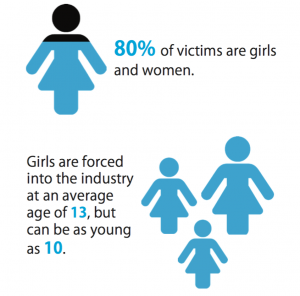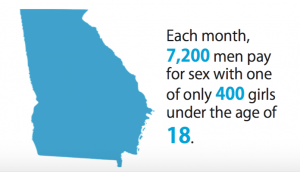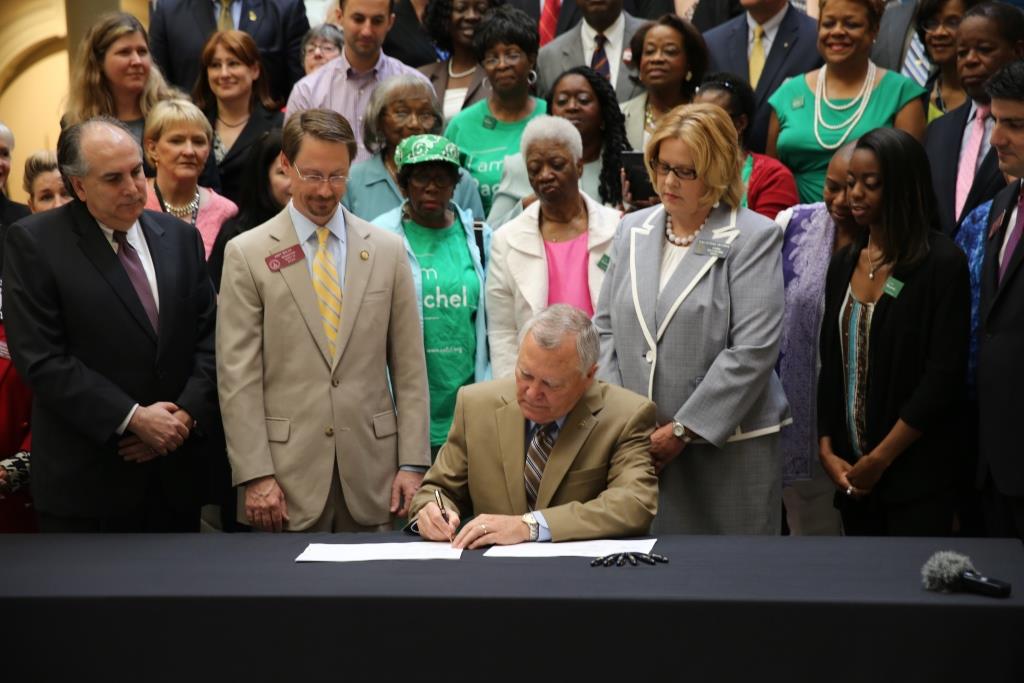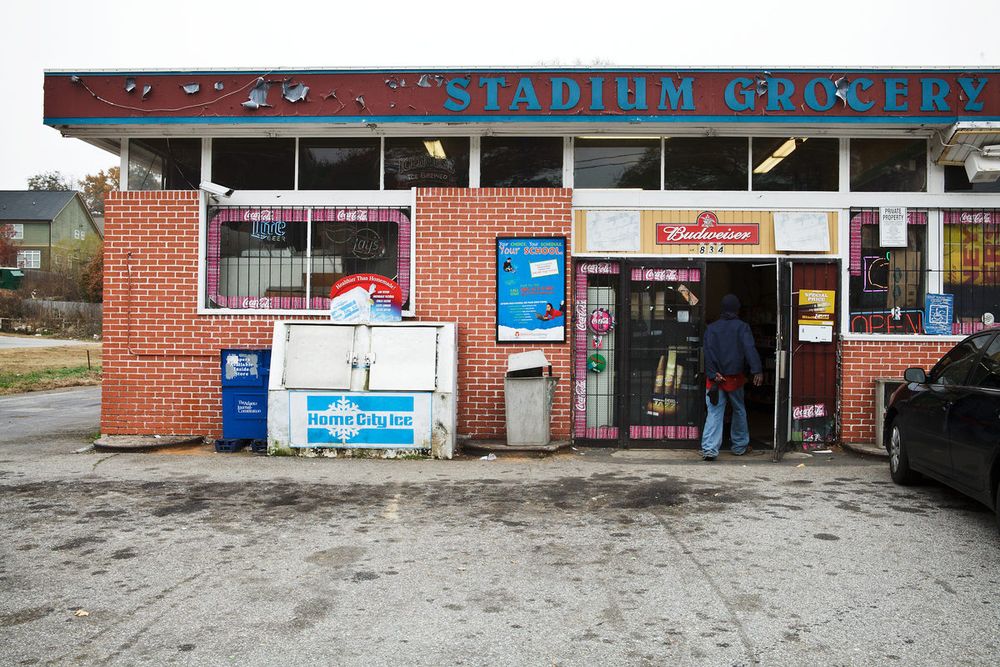By Kalvis Golde
This article originally appeared in the Spring 2016 edition of GPR Magazine.
Georgia voters have a chance to make an enormous impact when they vote in November 2016, and it has nothing to do with choosing our next president.
There is a state constitutional amendment, Ballot Amendment #2, up for ratification in November that could help protect victims of one of Georgia’s worst crimes – child sex trafficking. Called the Safe Harbor Fund amendment, it would establish a permanent fund to help children rescued from the sex trade to recover from the deep physical and psychological damage of forced prostitution. Currently, little to no public funding exists in Georgia to provide for this recovery.
Sex trafficking is arguably the worst, and most prominent, form of modern slavery. Traffickers lure individuals with low standards of living by promising a better life and working conditions. Extremely susceptible runaways are offered food and shelter by their exploiters, but no teenager is immune – teens with better living conditions are often tricked into a trafficker’s hands online. About half of all victims know the person who pushes them to prostitution.

The victims are disproportionately women and young girls: in Georgia, girls are forced into the industry at an average age of 13, but can be as young as 10. The girls are often physically abused by their traffickers or threatened against fleeing, but many have no sense of life outside the sex trade anyway. Some girls are raped thousands of times before they escape, if they escape at all.
As much as human and sex trafficking are global problems, this is also a local issue. Georgia, particularly Atlanta, is one of the biggest hubs for sex trafficking in the United States: every month in Georgia, nearly 7,200 men pay for sex with girls under the age of 18. That is a striking, but incomplete statistic. The number of underage girls sold for sex in Georgia each month is about 400 – an alarming indicator of how many of these girls are repeat victims. Additionally, only 10 percent of these men know they are purchasing sex with minors, which speaks to the lack of age transparency in the state’s prostitution industry.

Ten to fifteen years ago, awareness of this problem was scant. Efforts of Atlanta’s then-Mayor Shirley Franklin, non-profits, and lawmakers began to spread the word and push for reform. As a result, in 2011 Georgia lawmakers passed a bill that that elevated sex trafficking to a felony charge.
At that point, the biggest issue became the treatment of children exploited by sex traffickers; in court, they were viewed not as victims but as delinquents. Many girls were charged with prostitution or other crimes and sent to jail instead of receiving help. In Atlanta a pair of sisters arrested for prostitution, 10 and 11 years old at the time, were kept in jail by court officials because there was simply nowhere else safe for them to go. Upon release, the lack of care from both child services and their mother, a victim of severe drug addiction, found the girls back in traffickers’ hands.
A diverse group took up the challenge to change this: a number of non-profit organizations; GA Senator Renee Unterman and GA Representatives Chuck Efstration and Andy Welch; and the state Attorney General’s office. In the words of Heather Stockdale, executive director and cofounder of the non-profit Georgia Cares:
“It was quite a fight. While a lot had already been done to further the field, we were taking a hard line against the buyers and traffickers as offenders, while simultaneously addressing the victimization of these children…We were really re-establishing the state’s philosophy on the issue of child sex trafficking.”
A formidable task, but in 2015 their combined efforts succeeded in passing two bills through the state legislature. The first was Rachel’s Law, named for a brave survivor of sex trafficking who testified before Georgia lawmakers. Sponsored by Sen. Unterman, the bill prevents minors who are trafficked from being charged with sexual offenses (a notion known as “Safe Harbor”), increases penalties for sex traffickers, and requires that traffickers be listed on the state sex offender registry.
Victims of sex trafficking need more than safe harbor, though. They need care, and that requires money. That is the purpose of the current measure, Senate Resolution 7 (also sponsored by Sen. Unterman), a state constitutional amendment known as the Safe Harbor Fund. It establishes a permanent public fund that will go directly and solely to helping children rescued from sex trafficking by providing health services, safe housing, and psychological care. Without this help, rescued victims have little hope of long-lasting rehabilitation: in 2011, half of all girls rescued and placed in safe homes ran away, becoming easy targets for traffickers. And non-profit rescue homes only have so many beds.
The state legislature could have passed a simple spending measure to help rehabilitate victims of child sex trafficking, but this funding would expire each year and could be slashed in the future. As a result, lawmakers, led by Unterman, chose to pass the Safe Harbor Fund as a constitutional amendment. In this form, the money is untouchable except for its express purpose. Passing a constitutional amendment in Georgia requires a 2/3 majority in the legislature – Safe Harbor passed the Senate by an overwhelming 46-3 margin.
Ms. Stockdale explains just how monumental last year’s joint passage of Rachel’s Law and the Safe Harbor Fund was:
“The state took a stand to say that it believes that children who are victims of sex trafficking are victims, not criminals. [And the amendment] ensures in perpetuity that there are funds to support these victims and that money each and every year will go towards this purpose…For us at Georgia Cares, the overwhelming support from our legislative branch…gave us incredible hope that one day, we might eradicate this crime in Georgia.”
Lawmakers have acted, but now the fate of Safe Harbor rests in the hands of Georgia voters.
Any state constitutional amendment must be ratified by the people. Safe Harbor will appear on the ballot in November as Ballot Amendment #2. If it is ratified by 51 percent of Georgia voters, the fund will have permanent status, and the government will neither be able to deplete the fund nor use it for other purposes.
At face value, passage seems like an easy task. Even the most fiscally conservative voter would have a hard time deeming this money as unnecessary, and the amendment requires no new spending by the state. The Safe Harbor Fund will be fed by two sources: assets seized from caught perpetrators of sex trafficking, and a one percent assessment on the revenue of Georgia’s adult entertainment industry.
It is with that last aspect where the potential controversy arises. The links between the adult entertainment industry – mainly strip clubs, brothels, and pornography – and sex trafficking are well documented. If the owner of an adult entertainment business knowingly employs victims of human trafficking, this penalty is the minimum they deserve; if an owner does so unawares, the one percent assessment is a reasonable way to help ameliorate the damage done.
Regardless, Ms. Stockdale recounts that the assessment complicated passage of the amendment in the legislature: “Many legislators struggled with the additional fines and assessments on adult entertainment, but in the end, [they] saw enough of a connection with these businesses and [sex trafficking] to move it forward.” The concern now is that the adult entertainment industry will launch an advertising campaign against ratification, and the industry has deep pockets.
But hopes are high. A simple majority of Georgia voters is needed to ratify the amendment, an attainable goal. And university-age voters have an important role to play. Senator Renee Unterman, the amendment’s sponsor and a champion of the anti-sex-trafficking movement, called out to young voters in a statement to GPR:
“College students and Millennials have shown a high propensity to get involved in the fight against minor sex trafficking. The challenge to these young people is to translate that passion into voting “Yes” on the Safe Harbor Amendment in November.”
If you vote this November, keep Amendment #2 in mind. For the many students voting in their first presidential election, voting day will be exciting enough. But it is rare that voters, especially students, will have a chance to make such an impact with their vote at the state level. Should the Safe Harbor amendment pass, it would be a huge step forward in Georgia’s battle against child sex trafficking, and a testament to the army of supporters who battle this terrible crime every day.


